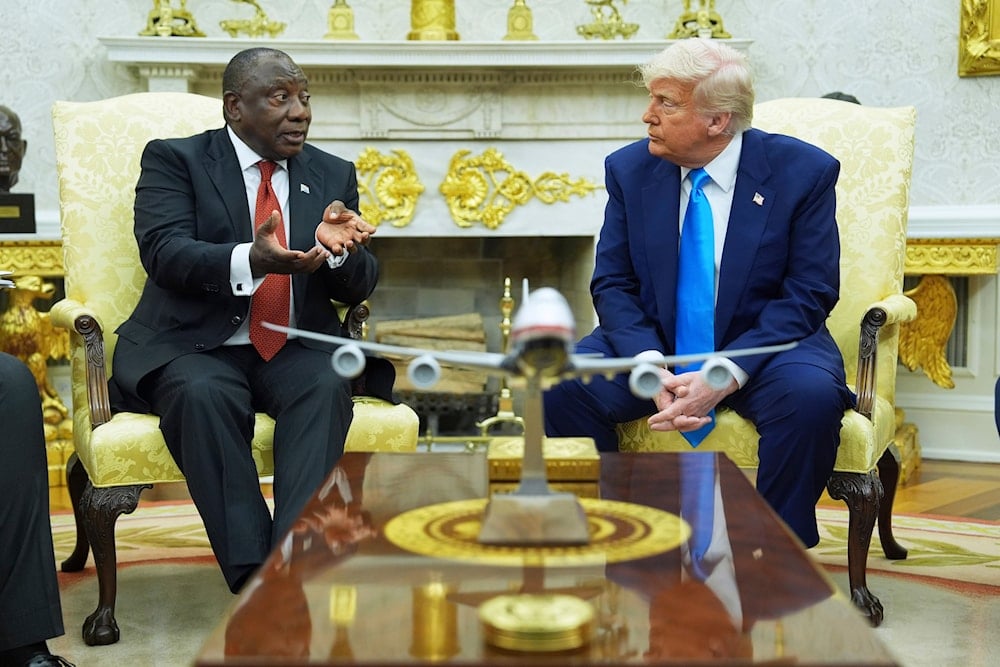Trump South Africa refugee policy faces questions on racism: Reuters
US officials debate whether non-white South Africans qualify for a refugee program originally tailored for Afrikaners facing alleged racial discrimination.
-

US President Donald Trump meets South African President Cyril Ramaphosa in the Oval Office of the White House on May 21, 2025, in Washington. (AP Photo/Evan Vucci)
In early July, the top official at the US embassy in South Africa contacted Washington seeking clarification on a controversial refugee policy, according to Reuters: could non-white applicants qualify for a program established to support white South Africans?
The policy, enacted by President Donald Trump through a February executive order, was framed as assistance for "Afrikaners in South Africa who are victims of unjust racial discrimination." Afrikaners are a white ethnic group descended largely from Dutch settlers.
On July 8, Embassy Chargé d’Affaires David Greene sent a diplomatic cable asking whether the embassy could process claims from other minority groups facing race-based discrimination, including coloured South Africans who speak Afrikaans.
Days later, the embassy received a response from Spencer Chretien, the top official at the State Department’s Bureau of Population, Refugees, and Migration. According to Reuters, which cited sources familiar with the communication, Chretien stated that the Afrikaner refugee program was specifically intended for white people.
However, the State Department later issued a broader statement, saying that US refugee policy in South Africa also considers other racial minorities. The department echoed guidance posted on its website in May, stating that applicants "must be of Afrikaner ethnicity or be a member of a racial minority in South Africa."
According to Reuters, Chretien, a conservative who previously promoted the Heritage Foundation's Project 2025 for restructuring the federal government, declined to comment. Greene also did not respond to media inquiries.
Controversy over racism
The controversy has pushed US officials to clarify whether the program prioritizes white applicants or includes other marginalized groups facing racial discrimination in South Africa. The Trump refugee order reignited debate over the country's racial history and ongoing inequalities.
Under apartheid, which ended in 1994, South Africans were classified by race: Black, coloured (mixed race), white, and Asian, with segregated schools, neighborhoods, and public services. Today, Black South Africans make up 81% of the population, coloured 8%, Indian 3%, and white, including Afrikaners, 7%, yet white South Africans still own roughly three-quarters of private land.
While defending the policy, Trump denied it was designed to favor white people. "They happen to be white, but whether they are white or Black makes no difference to me," he said in May. A White House official later stated the policy targeted South African citizens, including Afrikaners and other minorities, whom they alleged were affected by discriminatory laws.
Claims of systematic persecution against white South Africans, long promoted by far-right groups and echoed by Elon Musk, have been repeatedly rejected by the South African government, including the debunked “white genocide” narrative.
In a tense Oval Office meeting with President Cyril Ramaphosa in May, Trump reportedly presented an image from a Reuters video filmed in the Democratic Republic of Congo as supposed evidence of violence against white South Africans, an unfounded claim.

 3 Min Read
3 Min Read








